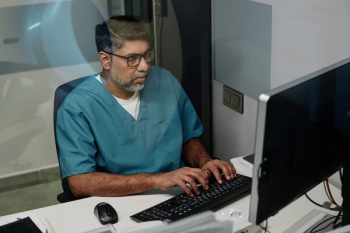
Battles Lost, Skirmishes Won: The Campaign Continues
Standing up for what you think is right (or ridiculous) isn’t always easy--or necessary.
One of the delightful couples with whom I recently vacationed is a health care duo. Neither is a doctor; one is a PA and the other is an advanced-credential nurse. Great folks, smart, and possessed of strong senses of humor.
My attention was jarred when I heard one of them abusing the term “endorses.” Longer-term readers of this column will know why.
Okay, okay, I’ll recap for everyone else: Many months ago, I started getting imaging studies whose clinical histories threw this term around in nonsensical ways. Such as “patient endorses pain.”
Confronted with a word that seems wrongly used, my first thought is to learn about a valid application previously unknown to me, so I look it up. More often than not, I find that there is no such appropriate usage; the speaker was in error. This was the case with “endorse,” which means expressing approval of something, supporting it, or recommending it.
I can thus endorse a political candidate, some aspect of his campaign-platform, or a particular type of toothpaste. But saying I “endorse” pain or any other symptom does not mean I am experiencing it. It does suggest that I might be a masochist or a psych patient who is saying that I’m really appreciating the symptom, and maybe think others should give it a try.
For more expert insights and the latest news, subscribe to the Diagnostic Imaging e-Newsletter here .
My previous blog on the matter (from November of 2019) can be dug up for details as to why and how I decided it was worthwhile to embark on a crusade to disabuse healthcare worker(s) of their faulty endorsements. Frustratingly, I never identified a perpetrator. My inquiries didn’t even indirectly get their attention, because I continue to hear of patients “endorsing” this and that to the present day.
Indeed, a concern I expressed in that blog seems to have been warranted: Others witnessing abuse of the word fail to recognize the error, and instead adopt its misuse, propagating the problem. The health care system inhabited by my endorsers is in Pennsylvania, but my health care friends live and work in New York. The issue has crossed at least one state-border, and I suspect it’s more rampant than that by now.
It took no small amount of restraint to turn to them with an air of casual calmness, and, without a hint of accusation in my tone, ask them what they’d just said. Because, if folks as capable as these had caught the endorsement-bug, I couldn’t hope that the rest of society would do any better.
Fortunately, their “endorsement” was in jest. Or, at least, when asked about it and taking a personal stand on the subject, they knew that the “patient endorses pain” usage was shaky at best—probably not the sort of thing you want to be heard saying by someone whose opinion you care about.
One of them explained he’d briefly held a job doing chart-reviews, and noticed endorsement-abuse perpetrated by one or more physicians. He described seeing it and thinking, “That sounds fancy,” and started parroting it. At least, when chatting with his wife.
I proceeded to tell them about my experiences, taking every opportunity to inject humor rather than sounding like a bitter academician. I like to think that, if they had any doubt about the proper usage of the word, my interaction with them moved the needle in the right direction.
It could be a valid opinion that I’m just being stubborn, tilting at this semantic windmill. The horse is out of the barn, the genie is out of the lamp, the endorsement is out of Pandora’s lexicon, whatevs. Maybe I should have given up when I failed to find a single referrer who would own up to the verbiage and/or talk about it.
That’s not generally my style, however. If I take on a cause, it’s because I feel it’s worthwhile; enough to not shrug and bail out the first time I encounter obstacles or even a seeming dead-end. Maybe not even after a couple of impasses.
I don’t repetitively plug away at the same target with the same methods, of course. Banging your head against the wall is both unproductive and unpleasant. If another approach is apparent, I might switch right to it, but it’s also not uncommon that I’ll table the issue, with every intention of taking it up again later on.
Maybe that happens in a few minutes, maybe a few years. It can be when conversing with different people, or after I’ve had time to reexamine my approach, even learn new things of relevance. Perhaps the world has turned enough times that circumstances now smile more favorably on my endeavor. Sometimes it takes a sense of humor. Flexibility works in some situations, but a tone of certainty and a strong “this is how things should be” approach can be better at times.
If you’re not dealing with an emergency, if it’s not “do or die” to get things squared right now, time can be on your side. That goes for finding the right radiology job for yourself, or renegotiating terms in a gig after you’ve had some time there to prove your worth. Setting up protocols for ordering, performance, or reporting of imaging-studies in your institution, you name it.
It’s also worth keeping in mind after you’ve won a long-term war you’ve been waging. Yes, by all means, enjoy and celebrate your hard-won victory, but chances are that other people, or at least circumstances which opposed you, are still out there. They might push for a return to the way things were. Having won the war, you should now be ready to win the peace.
Newsletter
Stay at the forefront of radiology with the Diagnostic Imaging newsletter, delivering the latest news, clinical insights, and imaging advancements for today’s radiologists.












